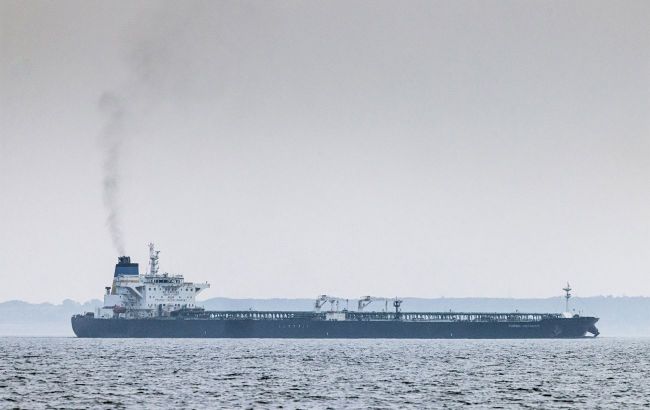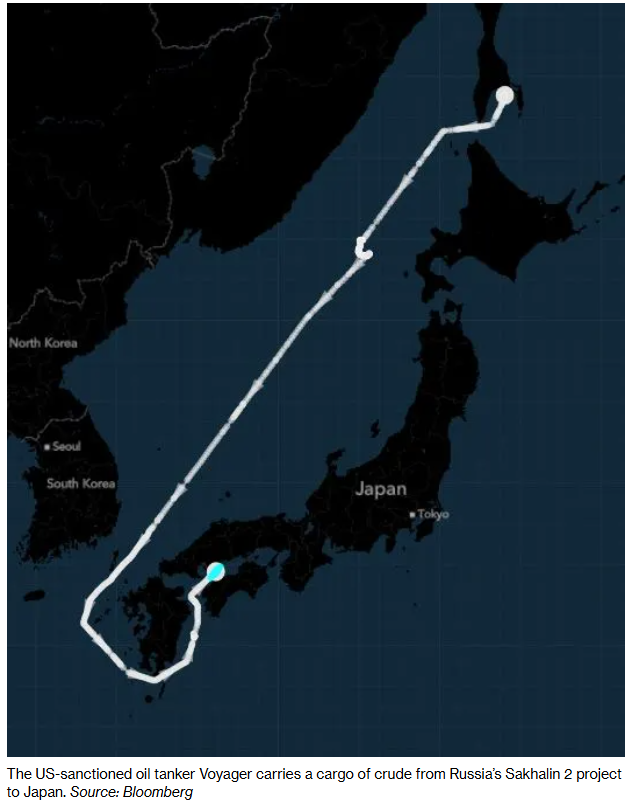Japan buys oil from Russian sanctioned tanker
 Photo: Putin sells oil to Japan thanks to Trump (Getty Images)
Photo: Putin sells oil to Japan thanks to Trump (Getty Images)
Japanese oil refiner Taiyo Oil takes delivery of a shipment of Russian crude oil on a tanker blacklisted by both the US Treasury Department and the European Union, Bloomberg reports.
According to the agency, this shipment - the first from Russia in two years - shows the growing ease for buyers around the world in dealing with Moscow.
Tokyo-based Taiyo is receiving 600,000 barrels of Sakhalin Blend crude oil from the tanker Voyager, according to ship tracking data collected by Bloomberg. The oil was loaded from the Prigorodnoye terminal on the southern tip of Sakhalin Island, off Russia's east coast, on May 25.

Japanese exemptions allow imports of the Sakhalin blend for energy security reasons. The exemption was extended until the end of June 2026 in the 17th package of EU sanctions against Russia on May 21. There is also a US exception that expires on June 28 and is usually extended.
However, the fact that a G7 country is accepting cargo on a blacklisted vessel underscores the idea that the Donald Trump administration is seeking to ensure uninterrupted oil supplies to Moscow.
A representative of Taiyo Oil confirmed the delivery and said that the company had purchased the crude oil at the request of the Japanese Ministry of Economy, Trade and Industry. Japan's liquefied natural gas production, which is supported by Japan, would suffer if it could not supply crude oil, as the two hydrocarbons are produced simultaneously, the representative said.
The Voyager docked in the Japanese port of Kikuma on June 9 to unload crude oil from Russia's Sakhalin-2 project, according to ship tracking data compiled by Bloomberg.
Much comfortable
Before Russia invaded Ukraine in February 2022, Japanese refineries imported an average of four shipments of oil per month from the Sakhalin-2 project.
Mitsui & Co. and Mitsubishi Corporation retained their 12.5% and 10% stakes in the project when Moscow created a new ownership structure later that year. Despite this, Japan, like other buyers, stopped purchasing.
Some importers of Russian crude oil are reluctant to accept cargoes carried on US-sanctioned vessels, and many of them have been idle for months after being blacklisted. But this indecision seems to be easing since Trump took office.
For example, shipments to India have been virtually unrestricted, despite previous promises by that country to comply with US measures.
Similarly, since the end of January, at least 20 shipments of Russian crude oil have been delivered to buyers in China and Syria on vessels subject to US sanctions. Many others completed part of their voyages on OFAC-listed vessels before being reloaded onto unauthorized vessels for the final leg of the delivery.
The US Office of Foreign Assets Control added the Voyager, formerly called the Vernadsky Prospect, to a list of 161 tankers sanctioned by President Joe Biden in January. The EU blacklisted the vessel the following month.
At the time, it noted that Sovcomflot had tried to circumvent the sanctions by outsourcing the management of some of its tankers, including the Voyager, to two ship managers based in the United Arab Emirates.

